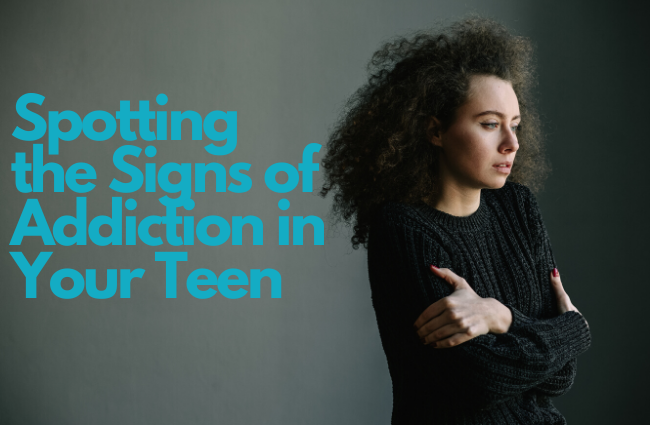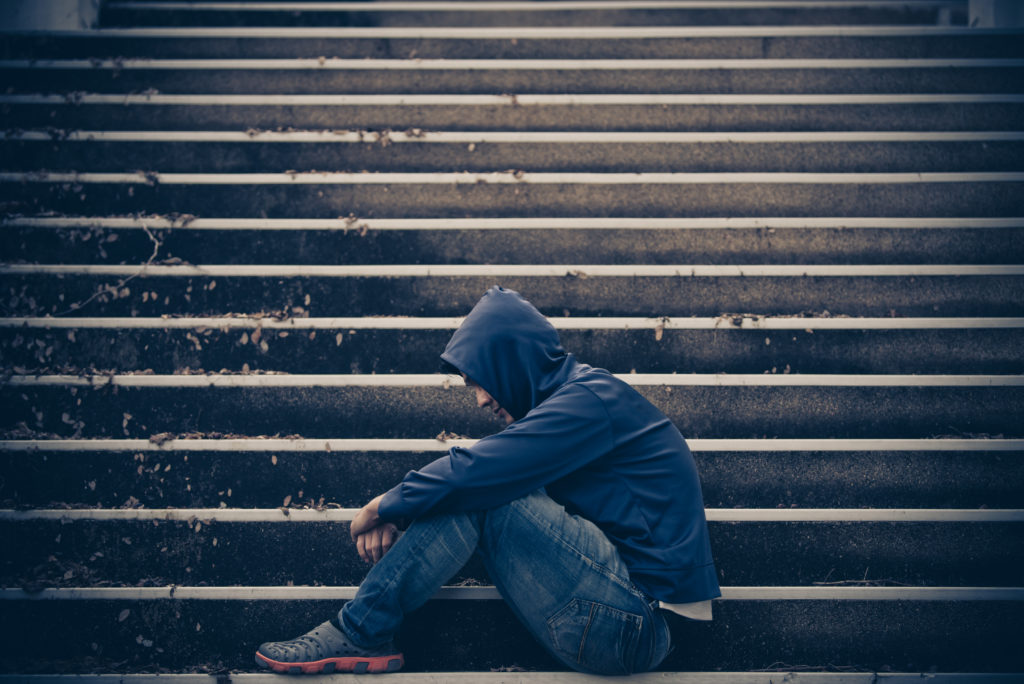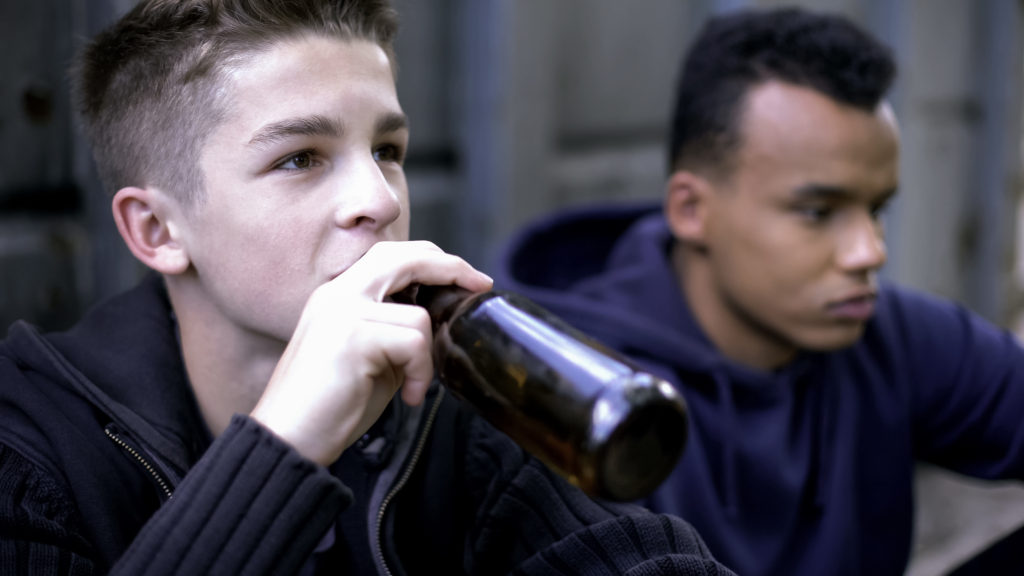Today’s post is a guest post by Dr. Nancy Irwin in partnership with Seasons in Malibu

As our children enter their teens, their independence and self-control should grow together as they prepare for adulthood. These natural changes are important for our children and prepare them for the decision-making skills they will need in the future. As with all new skills, practice and early mistakes are part of the learning process.
By this, I mean that kids make mistakes, and as parents we use these opportunities to guide them to better decisions in the future, by helping them understand the consequences of many kinds of risky behavior and life decisions. So as we talk about the signs of drug or alcohol addiction in teenagers, keep in mind that you have not failed as a parent if your child is using drugs. Rather, consider this the right time to focus on parenting your child and take meaningful action to help them overcome this life challenge.
The Early Signs of Teenage Drug Use
The early warning signs of teen drug use can be subtle and blend in with the other signs of growing independence and a desire for privacy. The most powerful tool you have as a parent is communication. Separating warning signs of drug abuse from the expected changes will be easier if you have your eyes and ears open and don’t hesitate to ask questions if you see signs like these:
- Changing their group of friends, suddenly or often, especially hanging out with known users
- Being unnecessarily angry and defensive if asked or confronted about their behavior
- Withdrawing from family activities, traditions, and routines by avoiding family meals and remaining in their room
- Asking to stay home from outings like vacations, parties, or family gatherings
- Violating curfew, arriving home late, and inventing stories about what happened
- Unprovoked anger or violent behavior, which may be a side effect of the drugs
- Signs of rapidly increasing agitation or withdrawal when they are required to stay home and won’t have access to substances
- Slurring of speech, clumsiness, unexplained bruises or injuries
- Declining grades, skipping classes, and other problems at school
- Lack of motivation, a desire to do nothing, avoiding activities they used to enjoy
- Stealing of money or items that can easily be sold to other teenagers
- Neglecting personal hygiene and their appearance, or wearing unusual types of clothes
- Secretive behavior, being caught in lies about where they were or what happened
- Signs of depression, including mood swings, not sleeping, or sleeping most of the day
- Threats to quit school, run away from home, or otherwise escape parental guidance rather than talk about or receive treatment for drug use (1)

What Should Parents Do If They See These Early Warning Signs?
Most of us do not want to move into detective mode with our own children, but these signs may be the only clues of a growing addiction. Ignoring them is usually not the right call as a parent, so consider these steps to confirm a suspicion that your teenager is involved with dangerous drugs or alcohol abuse:
- Check cell phones and social media for frequent calls or texts to numbers with mysterious labels
- Be aware that live multi-player games are often used for teenagers to communicate outside of normal channels
- Respond to threats which can range from running away to talk of suicide with actions to provide professional support or therapy
- Similarly, signs of possible overdose, depression, panic attacks, or declining physical health should be treated and may help you gain medical resources and connection to the addiction treatment and recovery community
- Request that your teenager take an at-home drug test to alleviate any suspicions, and remind yourself that knowing about the problem is a parent’s first step to helping their teenager stop using
- Search rooms, vehicles, and out of the way places around your home for paraphernalia or hidden supplies of drugs or alcohol
- Items you might find in this search which may be associated with drug use include:
- gram scales
- metal or glass pipes
- small pieces of tin foil
- tiny baggies, glass vials, or small envelopes
- hypodermic needles
- razor blades
- lighters or butane torches
- mirrors and short straws
- empty capsules
- bowls or spoons with residue for crushing pills

How to Talk to Your Teenager About Drug Abuse
Having a calm and open discussion with your teenager about drug use is a great way to bring a problem out into the open. Whether your child admits or denies drug use, do not overreact—offer only supportive solutions. Circle back to the fact that addiction is a widespread and chronic disease, which responds to early treatment.
Keeping that strong bond of caring support provides your teen with a stable foundation and starting point for recovery. Keep your conversations and interventions focused on the reality—you are on their side in finding help that fits their needs, but you will not ignore the issue. Facing mistakes and changing dangerous behavior patterns are essential life skills.
Together, you and your teen can take the right steps to stop substance use before it has long-term effects on physical and mental health. If you are struggling, reach out to a parental support group or therapist for the help you need to be there for your teenager. Teach by this one clear example, that you will never give up on them and will not allow them to give up on themselves.
Sources: 1. https://www.ncbi.nlm.nih.gov/pmc/articles/PMC3257983/

Author’s Bio
Dr. Nancy Irwin is a licensed clinical psychologist on staff with Seasons in Malibu, a rehab center providing world-class addiction treatment and dual diagnosis care. Dr. Irwin is a trauma expert and treats the underlying cause of addictions. She works with a team of psychiatrists, addiction specialists and therapists at Seasons in Malibu, creating unique, personalized treatment programs for every client.
